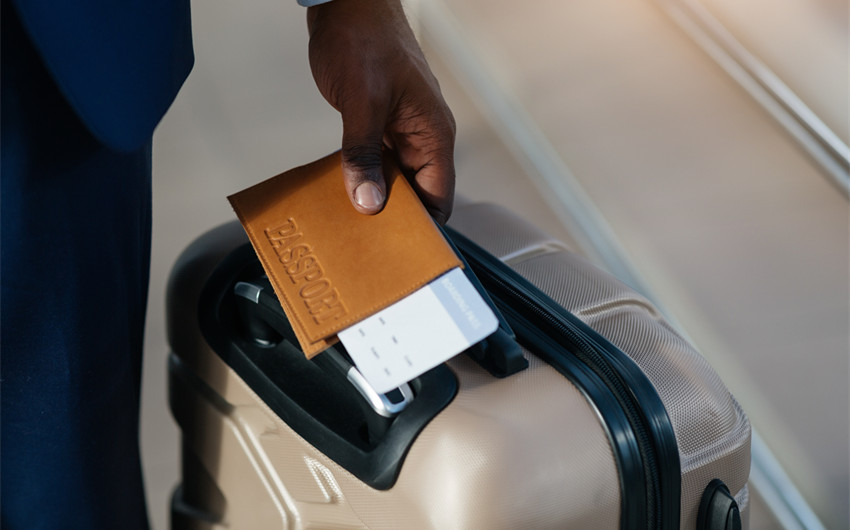How Often Must You Receive a Defensive Foreign Travel Briefing?
Traveling overseas for work may sound exciting, but if you’re a government employee, contractor, or someone with a security clearance, there’s more to pack than just your suitcase. Before stepping on that plane, you’re often required to complete certain security protocols—including a briefing designed to keep you and national interests safe.
At some point, you’ve probably asked yourself, how often must you receive a defensive foreign travel briefing? It’s a common question, and the answer depends on your role and agency guidelines. In this article, we’ll break down what the briefing is, who needs it, and how often it’s required.
What Is a Defensive Foreign Travel Briefing?

A defensive foreign travel briefing is a security-focused session designed to prepare U.S. government employees, military personnel, and contractors for potential risks they may face while traveling abroad. The goal of the briefing is to help travelers recognize and respond to foreign intelligence threats, criminal activity, and other security risks that could compromise personal safety or national security.
These briefings are typically required for individuals with security clearances or those who have access to sensitive information. They provide tailored guidance depending on the travel destination, traveler’s role, and the current geopolitical climate.
Topics commonly covered include:
-
Espionage and recruitment tactics used by foreign intelligence services.
-
Local laws and customs that may differ significantly from U.S. norms.
-
Cybersecurity threats, including hotel Wi-Fi risks and personal device vulnerabilities.
-
Social engineering and surveillance techniques to watch for in public settings.
-
Cultural awareness and tips to avoid drawing unwanted attention.
The briefing is not just a formality—it equips travelers with the knowledge and tools to protect themselves, their information, and U.S. interests while overseas. Whether conducted in-person, online, or through a designated security officer, it serves as a crucial layer of defense in an increasingly complex international environment.
The Official Requirement: How Often Is the Briefing Needed?

When it comes to staying compliant with federal security guidelines, the frequency of receiving a defensive foreign travel briefing is more than a technicality—it’s a core part of responsible travel planning. So, how often must you receive one?
In most cases, you are required to receive a defensive foreign travel briefing before each trip abroad if you are a U.S. government employee, contractor, or clearance holder. This requirement ensures that you are fully informed about the specific risks associated with your destination at the time of travel. Even if you’ve traveled to the same country before, the threat landscape may have changed since your last visit.
Some agencies, like the Department of Defense (DoD), also mandate that cleared individuals complete these briefings on a recurring basis—often annually—regardless of whether international travel is planned. This keeps individuals up to date on global security trends and best practices, ensuring they remain vigilant even between trips.
However, requirements can vary slightly depending on the agency or organization. For example, the State Department, Intelligence Community, or Department of Energy may have their own policies governing briefing frequency, delivery format, and documentation. Travelers should always check with their Facility Security Officer (FSO), Security Manager, or designated agency contact to confirm specific requirements prior to travel.
Consequences of Missing or Skipping the Briefing
Skipping a required defensive foreign travel briefing isn’t just a minor oversight—it can have serious personal and professional consequences. These briefings are mandated for a reason: they help protect both the traveler and national security. Failing to complete one before official travel can disrupt your plans, affect your standing, and even compromise your clearance status.
One of the most immediate consequences is the denial of travel authorization. For government employees and contractors, travel orders typically won’t be approved unless the defensive briefing has been completed and properly documented. If you’re on a tight schedule or part of a time-sensitive mission, missing this step could delay or cancel your assignment.
Beyond travel delays, non-compliance with briefing requirements may be viewed as a security violation. Repeated or deliberate failure to complete mandated briefings can be reported to your agency’s security office, which may result in administrative action or a formal reprimand. In cases involving security clearance holders, this could lead to a review of your clearance eligibility, especially if it’s determined that the lapse reflects negligence in following security protocols.
For contractors, there’s also the risk of violating the terms of your contract or facility clearance, which could affect future eligibility for government work. Many contracts include clauses requiring adherence to all security requirements—including pre-travel briefings—and failure to comply could be grounds for termination or loss of business.







